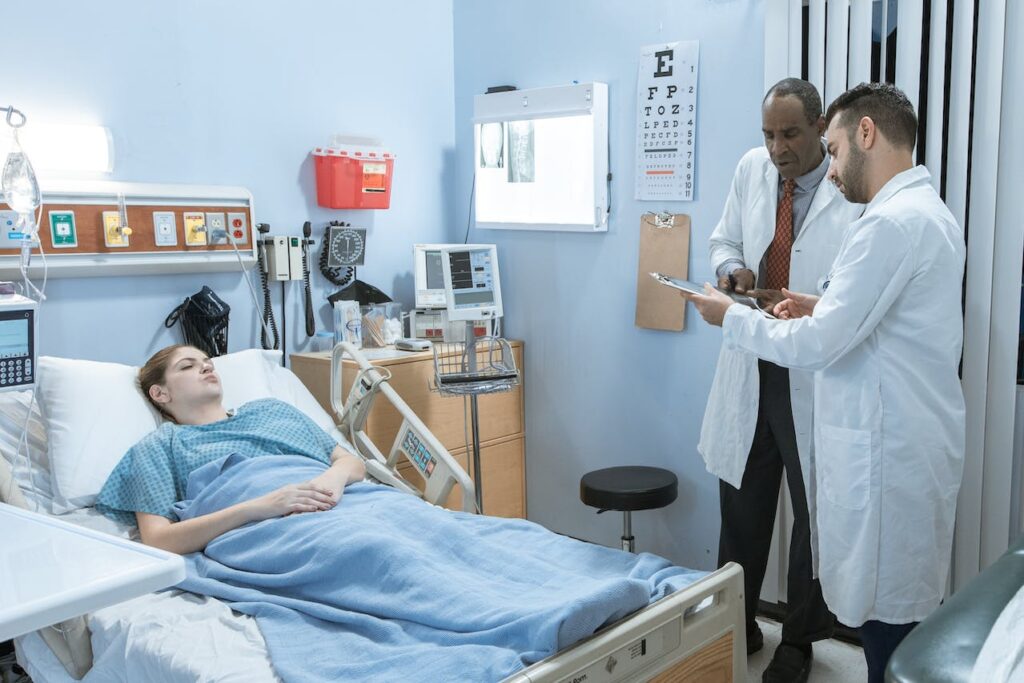Dialysis Care

Overview
Normally, the kidneys filter the blood, removing harmful waste products and excess fluid and turning these into urine to be passed out of the body.
Types of Dialysis
There are two major types of dialysis: hemodialysis and peritoneal dialysis.
Hemodialysis: In hemodialysis, the patient’s blood is circulated through a machine called a dialyzer, which acts as an artificial kidney. The dialyzer removes waste products and excess fluids from the blood, and the cleaned blood is then returned to the patient’s body. Hemodialysis is usually performed at a dialysis center or hospital.
At home You can also do hemodialysis at home by administering the treatment yourself. Hemodialysis at home affords you more flexibility in your schedule and allows you to better fit treatments into your daily schedule. Studies show that the more you know about your treatment and the more you do on your own, the better you are likely to do on dialysis.
Peritoneal Dialysis: Peritoneal dialysis uses the peritoneal membrane (lining of the abdomen) as a natural filter. A dialysis solution is introduced into the abdominal cavity through a catheter, and waste products and excess fluids pass from the blood vessels in the peritoneal membrane into the dialysis solution. After a set period, the used solution is drained, and new solution is introduced. Peritoneal dialysis can often be done at home.
Continuous Cycling Peritoneal Dialysis (CCPD), also referred to as automated peritoneal dialysis (APD), requires a cycler machine to automate the process of filling and draining dialysate in your abdomen. CCPD is a popular choice because it allows most of your dialysis to be performed at night, which frees up the day for work, school, or other activities. The cycler is programmed to perform three to five fluid exchanges while you sleep, usually over a time period eight to ten hours long. Cycler machines are also small enough to be set on your bedside table. Most people get used to sleeping while on a cycler rather quickly and have few problems.
Why do I need dialysis
If your kidneys are not working properly – for example, because you have advanced chronic kidney disease (kidney failure) – the kidneys may not be able to clean the blood properly.
Waste products and fluid can build up to dangerous levels in your body. Left untreated, this can cause a number of unpleasant symptoms and eventually be fatal.
Dialysis filters out unwanted substances and fluids from the blood before this happens.
How long will I need dialysis for
It depends. In some cases, kidney failure may be a temporary problem and dialysis can be stopped when your kidneys recover.
But often, someone with kidney failure will need a kidney transplant.
It’s not always possible to carry out a kidney transplant straight away, so dialysis may be needed until a suitable donor kidney becomes available.
If a kidney transplant is not suitable for you – for example, because you’re not well enough to have a major operation – dialysis may be needed for the rest of your life.
Which type of dialysis is best
In many cases, you’ll be able to choose which type of dialysis you want to have and where to have it.
The 2 techniques are equally effective for most people, but each has its own advantages and drawbacks.
- haemodialysis means you’ll have 4 treatment-free days a week, but the treatment sessions last longer and you may need to visit hospital each time
- home haemodialysis – you’ll usually need to have dialysis sessions more often than you would in a clinic, but you can choose a treatment plan that meets your medical needs and fits around your life
- peritoneal dialysis can be done quite easily at home and can sometimes be done while you sleep, but it needs to be done every day
If you’re able to choose the type of dialysis you prefer, your care team will discuss the pros and cons of each option with you to help you make a decision.